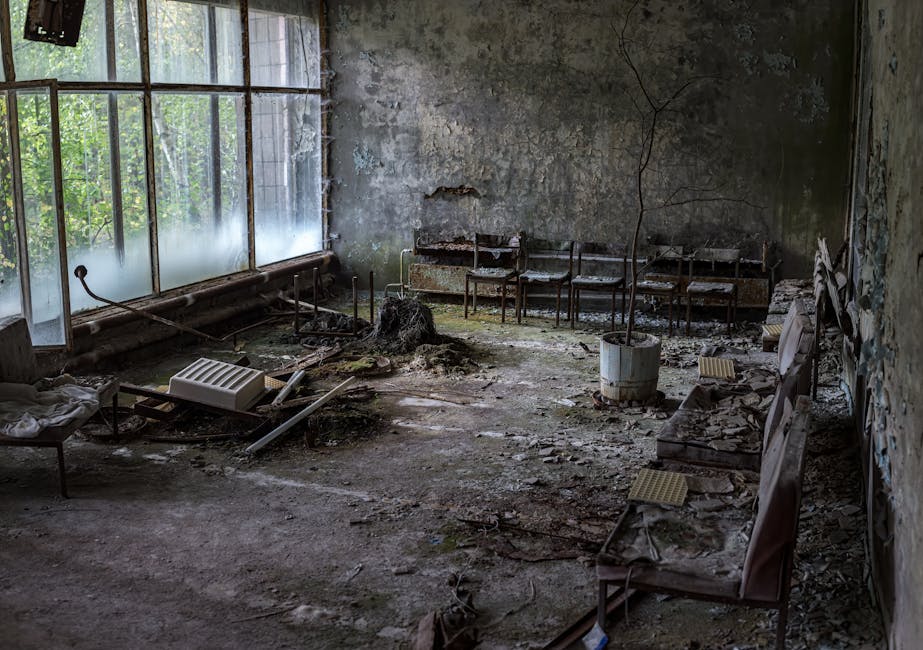Feeling overwhelmed by the daunting process of dealing with property damage claims? You’re not alone. Whether you’re a commercial, multifamily, or apartment property owner, one of the most challenging aspects you may face is understanding how to negotiate with an insurance adjuster for property damage. It can feel like entering a labyrinth, fraught with complex terms, demands for documentation, and lengthy processes that seem to be specifically designed to minimize your potential settlement.
Within this confusing matrix, insurance adjusters often loom large, with their role primarily focused on limiting the amount the insurance company pays out. Their expertise in dissecting and disputing claims can make you feel like you’re facing a giant with few tools at your disposal. However, we at the Insurance Claim Recovery Support are here to guide you, offering you the necessary tips and strategies to gain an upper hand in your negotiations.
To offer a quick glance of the journey ahead, here are some key things to have in mind:
- Understand the role of the insurance adjuster
- Know your rights as a policyholder
- Prepare well for the negotiation, gathering relevant evidence and documentation
- Develop a clear strategy for negotiating your settlement
- Sometimes, seeking professional help becomes inevitable

Keep reading, and we’ll walk you through each stage, ensuring your path to a fair settlement becomes smoother and less stressful.
Understanding the Role of Insurance Adjusters
To know how to negotiate with insurance adjusters for property damage, you first need to understand their role and how they operate.
The Difference Between Public Adjusters and Claims Adjusters
There are two types of adjusters you will encounter during your property damage claim process: insurance adjusters and public adjusters.
Insurance adjusters, sometimes referred to as company adjusters, work for the insurance company. Their primary task is to evaluate the damage to your property and prepare a settlement amount. However, it’s crucial to remember that they represent the insurance company’s interests, not yours. Their ultimate goal is to minimize the company’s payout, and they might overlook losses that are not obvious, potentially causing you to incur future expenses.
Contrarily, public adjusters are hired by you and represent your interests. They work towards maximizing your claim settlement, offering you an advantage in the negotiation process. Public adjusters are paid a percentage of the claim amount, which means it’s in their best interest to get you the highest possible settlement.
| Public Adjuster | Insurance Adjuster |
|---|---|
| Hired by the policyholder | Employed by the insurance company |
| Represents the policyholder’s interests | Represents the insurance company’s interests |
| Paid a percentage of the claim amount | Paid a salary/wage by the insurance company |
| Maximizes the claim’s payout for the policyholder | Ensures the insurance company doesn’t overpay |
At Insurance Claim Recovery Support, our team of public adjusters are ready to help you understand the complexities of the insurance claim process and ensure you receive a fair and prompt settlement.
How Insurance Adjusters Work to Minimize Settlements
Insurance adjusters operate with the primary goal of saving money for the insurance company. They do this in several ways. One tactic is to withhold coverage information, hoping you haven’t read your policy in detail. For instance, in the case of a fallen tree on your property, they might include an amount to have the tree removed but not offer information that the cost of a new tree could also have been in the claim.
Understanding this, it’s vital to review your policy carefully before any negotiations. Make sure you’re fully aware of what you’re entitled to receive so you don’t inadvertently leave money on the table.
In the next section, we’ll delve deeper into how you can prepare for the negotiation process to ensure your rights as a policyholder are protected.
Knowing Your Rights as a Policyholder
In the process of figuring out how to negotiate with insurance adjuster for property damage, knowing your rights as a policyholder is vital. The power dynamic in negotiations can often feel tipped in favor of insurance adjusters, making it essential for you to understand your rights and be prepared to assert them.
Understanding Your Insurance Policy
Your insurance policy is a legally binding contract that outlines what the insurer will cover in the event of property damage. It shows what types of damage are covered, what is excluded, and the extent of the coverage. Knowing your coverage is crucial to expedite your claim and ensure you receive a fair settlement. It helps you understand what you can claim and what documents you need to prepare and submit .
If the language of the policy seems complex, consider seeking help from a professional like a public adjuster. At Insurance Claim Recovery Support, we provide expert guidance on interpreting policy language and ensuring our clients’ rights are protected.
The Right to Appeal and Negotiate Settlement Offers
One of your key rights as a policyholder is the right to negotiate. While insurance adjusters might tell you that their first offer is their only offer, you actually have the right to refuse if you believe it is unfair. As long as you meet your policy’s terms, you can negotiate a better deal.
Moreover, you also have the right to hire a loss assessor to review your property damage and see if their assessment matches the insurance adjuster’s. If your assessor’s evaluation is larger than the insurance company’s, you can use the assessor’s report to justify requesting additional money for your claim .
In addition, you have the right to ask for an itemized list showing how the insurance adjuster calculated your claim’s value. This can be particularly useful if the adjuster has missed something or if their estimates do not align with your estimated repair costs.
Understanding your policy and your rights is the first step in learning how to negotiate with an insurance adjuster for property damage. The more informed you are, the better positioned you will be to navigate the claims process effectively and ensure a fair settlement.
Preparing for Negotiations with Insurance Adjusters
Successfully negotiating with an insurance adjuster for property damage involves thorough preparation. This process includes gathering relevant evidence and documentation, calculating a fair settlement amount, and determining your bottom line.
Gathering Evidence and Documentation
The first step in preparing for negotiations is to gather as much evidence as possible related to your property damage. This includes photographs and videos of the damage, eyewitness statements, and any other relevant documentation. The more evidence you have, the harder it will be for the insurance company to dispute your claim.
You’re not dealing with the driver or individual who may have caused the damage, but rather their insurance company. The insurer relies heavily on recorded and physical information, not personal testimonies. Therefore, it’s crucial to provide clear, concrete evidence that supports your claim.
Calculating a Fair Settlement Amount
The next step is to calculate a fair settlement amount. This should include all relevant past, current, and future economic and non-economic damages. Some of these may include repair or replacement costs, lost income if the damage affected your ability to generate income, as well as any other incidental costs related to the property damage.
Insurance adjusters are always going to take the path of least resistance. If you’re well-prepared and informed, they are less likely to offer you a lowball settlement because they’ll realize you understand the process and won’t fall for their tricks.
Knowing Your Bottom Line
Finally, it’s crucial to determine your bottom line. This is the minimum amount you’re willing to accept in a settlement and it should accurately reflect what you believe you are owed.
This figure serves as a stability mechanism during negotiations, ensuring you don’t agree to an offer that doesn’t meet your needs. Accepting a low settlement can have long-term consequences, particularly if the settlement doesn’t cover all your repair costs or other damages.
At Insurance Claim Recovery Support, we’re here to help and guide you through these steps. We understand the importance of thorough preparation and will work with you to ensure you’re ready to negotiate a fair settlement for your property damage claim.
Effective Strategies for Negotiating with Insurance Adjusters
So, you’ve prepared and know your rights, but what comes next? Let’s dive into some effective strategies on how to negotiate with insurance adjuster for property damage.
Challenging the Adjuster’s First Offer
It’s common for an insurance adjuster’s first offer to be low, as they’re often looking to save the company money. Don’t be afraid to challenge this initial offer. Be ready to explain why you believe the settlement should be higher, providing them with reasons and evidence to take back to their supervisor. In our experience at Insurance Claim Recovery Support, we’ve found that a well-prepared argument can often lead to a more favorable outcome.
Using Polite and Respectful Communication
Even if the negotiation process becomes frustrating, maintain a polite and respectful demeanor. Avoid the urge to be adversarial as this can make the process more difficult. Keep your communication clear, concise, and focused on the facts of your claim. The goal is to get a fair settlement, not to win a battle of words.
Avoiding Admissions of Fault
In your interactions with the adjuster, avoid any language that could be construed as admitting fault or responsibility for the damage. Even expressing regret or sympathy about the incident can be misconstrued as an admission of fault. Instead, focus on the facts and let the evidence speak for itself.
Getting Settlement Offers in Writing
Each time a new offer is made, request it in writing. This will ensure that there are no misunderstandings about the amount or terms of the offer. It will also provide a paper trail of the negotiation process, which can be beneficial if you later decide to consult a professional or take legal action.
Negotiating an insurance claim for property damage can be a complex process. If at any point you feel overwhelmed or unsure, don’t hesitate to seek professional assistance. At Insurance Claim Recovery Support, we’re here to help guide you through the process, ensuring you get the settlement you justly deserve.
When to Seek Professional Help
Negotiating with insurance adjusters for property damage can be a daunting task. It requires knowledge, patience, and firm negotiation skills, and even then, you may not always achieve the outcome you want. This is why it’s sometimes best to seek professional assistance.
Consulting a Property Damage Lawyer
A good place to start is by speaking with a property damage lawyer. These professionals have a proven track record of helping people maximize their property damage claims. They understand the tactics insurance companies use to minimize payouts and can help you navigate through the claims process.
Insurance companies can often bully unrepresented property owners and unfairly deny insurance claims. Your attorney can fight aggressively on your behalf, ensuring that you are fairly compensated for your losses.
Hiring a Public Adjuster: The Role of Insurance Claim Recovery Support LLC
Public adjusters like us at Insurance Claim Recovery Support are professionals who specialize in property damage claims. Unlike insurance adjusters who work for the insurance companies, we work for you, the property owner. Our primary aim is to ensure that you receive a fair and accurate settlement.
Our public adjusters undergo a meticulous process of evaluating and documenting your property damage, providing indisputable evidence for your claim. We create a complete inventory of all damaged and lost property, including detailed descriptions of items, their value, and a quantifiable estimate of loss or repair costs.
Once the full extent of your property damage is documented, we leverage our industry expertise to negotiate with the insurance company on your behalf. We ensure that the insurance company gives equal consideration to anything presented in support of your claim.
At Insurance Claim Recovery Support, we understand the complexities of the insurance claim process and are dedicated to ensuring you receive a fair and prompt settlement. For more information on how we can assist you, visit our Professional Help Directory.
In conclusion, knowing how to negotiate with insurance adjuster for property damage is essential, but professional help can make the process significantly smoother. Whether you choose to consult with a lawyer or hire a public adjuster like us at Insurance Claim Recovery Support, remember that you don’t have to navigate this process alone. We’re here to help you get the settlement you deserve.
Navigating Property Damage Claims in Texas
Navigating property damage claims in Texas can be particularly challenging due to the state’s diverse weather conditions and the unique challenges they present. From hailstorms and tornadoes to hurricanes and wildfires, Texas cities each face their own distinct set of challenges.
Dealing with Fire and Storm Damage in Austin, Dallas, Fort Worth, San Antonio, Houston, Lubbock, San Angelo, Waco, Round Rock, Georgetown, and Lakeway
In cities like Austin and Dallas, hail and tornado damage are common occurrences. Widespread wind damage from storms can lead to toppled buildings and uprooted trees. Hail damage is another frequent issue, often leading residents to repair their cars and homes after severe weather events. These cities require a robust response strategy to deal with hail and tornado damage swiftly and effectively.
On the other hand, coastal cities like Houston and San Antonio often face the brunt of hurricanes and subsequent flooding, causing substantial property damage. Businesses in these areas often have to purchase separate insurance for windstorm and hail damage, as many insurers exclude these from standard commercial property insurance, especially in coastal regions.
Further west, in cities like Lubbock and Waco, wildfires pose additional challenges, causing extensive property damage and posing a significant risk to life and property.
Regardless of the type of natural disaster, dealing with the aftermath is a complex process that can be overwhelming for property owners. That’s where we, at Insurance Claim Recovery Support, come in. As public insurance adjusters, we assist policyholders in assembling and submitting claims, negotiating settlements, and recovering the fullest compensation possible.
Understanding the Texas Insurance Claim Process
The insurance claim process for property damage can be daunting, especially when you’re dealing with the aftermath of a disaster. Here’s a simplified overview of how the process works:
- File your claim: The process begins when you file a property damage claim with your insurance company. Be sure to submit your claim within the timeframe specified in your policy to avoid claim denial.
- Inspection by the insurance company: The insurance company will send a claims adjuster to inspect the property damage. The adjuster’s assessment will help determine the extent of the damage and the initial offer made by the insurance company.
- The initial offer: The insurance company will make an initial settlement offer based on the adjuster’s assessment. This offer is often lower than the actual value of the claim, and consult a professional before accepting it.
- Negotiation: If the initial offer is unsatisfactory, negotiations with the insurance company begin. This is where a public adjuster or a property damage lawyer can be invaluable, helping to negotiate a fair settlement.
- Settlement or litigation: If negotiations are successful, you will reach a settlement with the insurance company. However, if the insurance company refuses to negotiate in good faith, you might need to take legal action.
Knowing how to negotiate with insurance adjuster for property damage can significantly affect your settlement. If you need support dealing with your Texas storm damage claim, don’t hesitate to reach out to us. We are committed to ensuring you receive what you rightfully deserve from your insurer.
Conclusion
Negotiating with insurance adjusters for property damage claims can indeed be a challenging process. However, equipped with the right knowledge, preparation, and resources, you can significantly enhance your chances of securing a fair and prompt settlement. Always remember to gather sufficient evidence, understand your policy thoroughly, and be clear about your settlement expectations. Don’t hesitate to challenge the adjuster’s first offer and remember, you have the right to appeal and negotiate, as well as consult professionals when needed.
At Insurance Claim Recovery Support, we understand the complexities and nuances of negotiating with insurance adjusters. We’re here to support you every step of the way, providing expert guidance and representation to ensure you receive the settlement you deserve.
You’re not alone in this journey. We’re here to take the stress off your shoulders, so you can focus on what truly matters – recovering from the property damage and getting your life back on track.
For more insights and advice on navigating property damage claims, you can explore some of our helpful resources. Learn more about the difference a good public adjuster can make in settling your property damage insurance claim here, or check out our tips for filing claims here.
When it comes to negotiating with insurance adjusters for property damage, knowledge is power. Equip yourself with it and you’ll be well on your way to achieving a better settlement.










